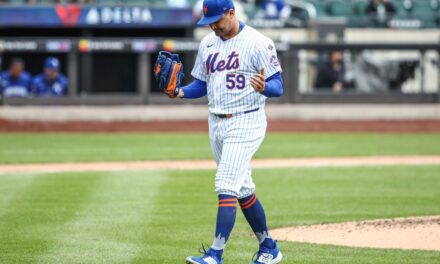As I had mentioned in my previous post, it has been nearly a year since the Mets acquired J.J. Putz from the Seattle Mariners in exchange for a bevy of players.
When they acquired the hard throwing righty, the Mets envisioned having a proven closer that could fill in the closer’s role if needed.
However, as usual, things did not work out as planned for the Mets.
Throughout his brief season Putz found himself filling in for closer, Francisco Rodriguez only four times. He was able to successfully convert two of these four opportunities into saves.
On top of that, Putz never seemed to be completely healthy. In April, he posted a lackluster 4.09 ERA in eleven appearances.
During his second full month with the team, in May, Putz began to settle down and had an ERA of 3.63 in 17 games.
Putz also, improved his K:BB ratio to 15:12, which is by no means good, but it was definitely an improvement of his April ratio of 4:6.
Just when things appeared to be turning around for the better, Putz’s season took an alarming turn in only two appearances. Both were against the Pittsburgh Pirates, who were by no means a powerful team.
In the first game that he pitched, Putz surrendered four runs, three of which were earned before being lifted without recording an out.
In the second game of the series, Putz didn’t fare much better. This time around, he was able to get through the inning, however not before giving up two runs.
By the end of these two nightmarish performances, Putz nearly doubled his ERA to 5.22. Before long, the fears regarding Putz’s struggles were confirmed…he was hurt.
In mid-June it was announced that Putz would need elbow surgery to remove a bone spur, but that he would return to the team later on in the season.
Unfortunately that day never came, and he ended up requiring additional surgery. Putz ended up finishing what was one of the worst seasons in his big league career on the sidelines.
As has been discussed a countless number of times, the Mets hold an option worth $8.6 million for the pitcher’s services in 2010.
All indications are that Putz will be ready to pitch by the time Spring Training rolls around next year. However, is that enough of a reason to bring back the veteran pitcher?
It is an interesting case, as despite the fact that Putz is coming off a terrible injury ridden season, it is hard to ignore his impressive track record. An All-Star in 2007, Putz has had numerous successful seasons in the hitter-friendly American League.
Final Verdict: While I believe it is fair to say that 2009 was not an accurate gauge on whether or not J.J. Putz will be an effective pitcher in the future, there are just too many question marks to commit nearly $9 million to.
Turning down Putz’s option is a no-brainer. However, I believe the team should pursue him as a free agent and try to sign him to a one year deal at a significantly lower salary to help rebuild his value.
Keep in mind, this year’s free agent pool will be filled with numerous potential closers, so Putz will not be able to command as high of a paycheck as he would if the pool was more shallow.
If the team is unable to come to terms with the pitcher then I wish him well as he seemed to bring a sense of spunk that no one else on the team seemed to have last season.













